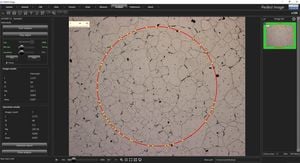The discovery of how the BRISC (BRCC3 isopeptidase complex) contributes to alcoholic liver disease has opened new avenues for treatment strategies against this severe condition. Recent research reveals BRISC's involvement as both regulator and target during the progression of alcohol-induced liver injury.
Alcoholic liver disease (ALD) has emerged as a significant health issue globally, covering stages from fatty liver to malignant liver cancer, often arising from prolonged alcohol consumption. This study sheds light on the molecular mechanisms underlying ALD, particularly focusing on BRISC, which has demonstrated its upregulation during alcoholic liver inflammation, accentuating its potential therapeutic role.
Research indicates the expression levels of BRISC were significantly higher in liver tissues from patients with alcoholic hepatitis (AH) and animal models, providing compelling evidence of its connection to liver deterioration due to alcohol. "Our results suggest BRISC may serve as a promising therapeutic target for ALD treatment," stated the authors, underlining the urgency for treatments addressing liver inflammation.
The study utilized mouse models subjected to chronic plus binge ethanol exposure to investigate the effects of reduced BRISC activity. Mice genetically deficient of BRISC components exhibited significantly lower levels of liver steatosis, inflammation, and injury compared to their wild-type counterparts. The study utilized various methods, confirming both genetic ablation of BRISC and pharmacological inhibition yielded similar protective effects.
The treatment using thiolutin, a specific BRISC inhibitor, proved effective, demonstrating reduced serum levels of proinflammatory cytokines post-ethanol exposure. "Pharmacological inhibition of BRISC could achieve the extent of protection from ASH observed," the study noted, indicating the inhibitor's efficacy.
BRISC has been documented to facilitate inflammatory signaling pathways pivotal for ALD progression, particularly through promoting the NLRP3 inflammasome activity. The researchers noted, "Lack of BRISC inhibited the expression of NF-κB target genes, including TNF-α, IL-6, CXCL1, CXCL2, NLRP3, and IL-1β," signifying its role as a key player in modulating liver response to ethanol.
These findings provide substantial groundwork for exploring therapies aimed at BRISC modulation, representing a significant stride toward effective management of alcoholic liver injury. Such insights pave the way for future work to delineate BRISC's precise physiological roles across different contexts, with the hope of developing targeted treatments to combat the rising tide of alcohol-related liver diseases.
Overall, the research not only elucidates the detrimental roles BRISC plays during alcohol-induced liver injury factors but also emphasizes the importance of developing drugs targeting this deubiquitinating enzyme as promising therapeutic approaches for ALD. With the increasing prevalence of alcoholic liver disease, such studies are timely and play an integral role in shaping effective treatment paradigms.



